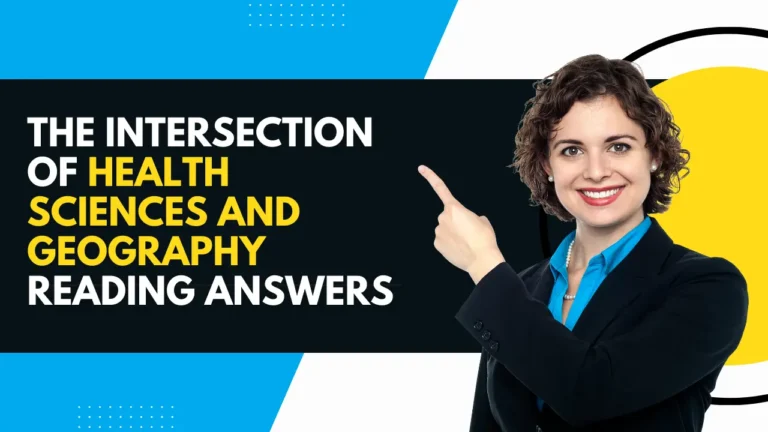Understanding the Connection Between Health and Technology

In the modern world, health and technology often intersect to shape the way we approach well-being. With a focus on physical and mental health, it is essential to explore tools and strategies that support a healthier lifestyle while leveraging technological advancements to make informed decisions.
The intersection of health and technology has become more pronounced in recent years. From fitness trackers that monitor our physical activity to telemedicine platforms that provide remote consultations, technology is reshaping how we manage our well-being. However, to truly benefit from these advancements, it is important to strike a balance between leveraging technology and maintaining a focus on traditional health practices.
Physical Health: The Foundation of Well-Being
Physical health serves as the cornerstone of overall wellness. Regular physical activity, balanced nutrition, and adequate sleep are critical for maintaining energy levels, preventing chronic diseases, and improving quality of life. Experts recommend engaging in at least 150 minutes of moderate-intensity aerobic activity each week, complemented by strength training exercises twice a week. Additionally, a nutrient-rich diet that includes fruits, vegetables, whole grains, lean proteins, and healthy fats is essential for sustaining optimal health.
Technology plays a pivotal role in supporting physical health goals. Wearable devices such as smartwatches and fitness bands allow users to monitor metrics like heart rate, steps, and calorie expenditure. Mobile apps provide personalized workout plans, track progress, and offer insights into dietary habits. By integrating these tools into daily routines, individuals can stay motivated and informed on their journey to better health.
The Rising Importance of Mental Health
In today’s fast-paced world, mental health is as significant as physical health. Chronic stress, anxiety, and burnout can take a toll on overall well-being, making it imperative to prioritize mental health practices. Activities like mindfulness meditation, journaling, and engaging in hobbies can help reduce stress and improve emotional resilience.
The role of technology in mental health is growing, with apps such as Headspace and Calm offering guided meditations and relaxation techniques. Virtual therapy platforms provide access to licensed counselors, making mental health support more accessible than ever before. These tools, when used thoughtfully, can complement traditional mental health strategies and provide additional resources for those in need.
Innovative Health Solutions: The Role of Artificial Intelligence
Artificial intelligence (AI) is revolutionizing the healthcare industry. AI-driven tools are being used to analyze medical data, identify patterns, and predict potential health risks. For instance, AI-powered diagnostic systems assist doctors in detecting diseases earlier, leading to more effective treatments. Furthermore, personalized medicine, which tailors treatment plans to an individual’s genetic makeup, is becoming more feasible thanks to advancements in AI.
In the creative world, tools like the AI image generator showcase the versatility of artificial intelligence. Similarly, in healthcare, AI is enhancing capabilities across various domains, from automating administrative tasks to advancing research in drug discovery.
Building Healthy Habits for Long-Term Success
Developing healthy habits requires consistency and a structured approach. Start by setting realistic goals that align with your lifestyle. For example, aim to include at least one fruit or vegetable in every meal, dedicate 15 minutes to mindfulness each day, or schedule regular physical activities like yoga or cycling. Tracking progress, whether through a journal or a mobile app, can help you stay accountable and celebrate milestones along the way.
Creating a supportive environment is equally important. Surrounding yourself with individuals who share similar health goals can provide motivation and encouragement. Participating in group fitness classes or joining online health communities are excellent ways to build connections and share experiences. Technology can further enhance this journey, offering platforms to connect with like-minded individuals and access valuable resources.
The Future of Health and Technology
As technology continues to evolve, its impact on health will only grow. From wearable devices that provide real-time health monitoring to AI algorithms that drive precision medicine, the potential for innovation is limitless. However, it is essential to remain mindful of the balance between relying on technology and maintaining human connections and traditional practices.
Conclusion
Health and technology are intertwined in ways that offer unprecedented opportunities for improving well-being. By prioritizing physical and mental health, leveraging innovative tools, and fostering sustainable habits, individuals can navigate the complexities of modern life with greater ease. Embracing advancements in technology while staying grounded in time-tested health practices ensures a holistic approach to a healthier, more fulfilling.
Also read: WellHealthOrganic Stress Management: Guide to Balanced Life






